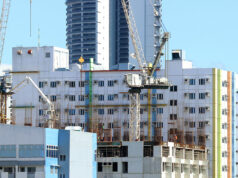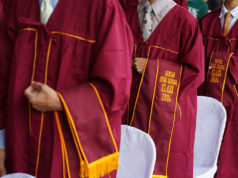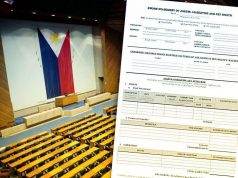‘Endo’ sticks out to business as LEDAC tackles priority bills
AS THE Legislative-Executive Development Advisory Council (LEDAC) holds its third meeting this month to agree on legislative priorities of President Rodrigo R. Duterte’s administration, a number of business leaders have cited their concern over the controversial end-of-contractualization or “endo” labor practice that had been identified early on as a priority of the council.
The 20-member advisory body had earlier approved for the present 17th Congress a Common Legislative Agenda (CLA), consisting of 28 measures of which 14 were identified as urgent by the LEDAC Executive Committee (LEDAC-EXECOM) last July.
Among the priority measures, 10 are “already in the advanced stages of legislation,” the National Economic and Development Authority said in a statement last week.
These measures include the Ease of Doing Business Act, which the Senate approved on final reading late last month, and the Comprehensive Tax Reform, now pending in this chamber and subject to further discussion. The Senate is scheduled to hold a caucus today in part to tackle the pending priority measures.
Outside the 10 priority measures but still part of the CLA is the Security of Tenure Bill, as originally identified among LEDAC’s priority measures last July.
Sought for comment regarding the CLA, Jesus Lim Arranza, chairman of the Federation of Philippine Industries, said in a phone interview he agreed with the CLA but expressed doubts regarding “endo.”
“The only issue here that I have second thoughts is the endo or contractualization. Because my point is, if it is not the core business of the company, they can do contractualization and endo, not a permanent hire. Because there are companies although the same line but they differ in the profitability,” Mr. Arranza said.
Also sought for comment, George T. Barcelon, president of the Philippine Chamber of Commerce and Industry, said: “This has been discussed lengthily before. Again, I think the private sector and DoLE and the labor sector have been in agreement already. There’s been some flexibility because in any business meron naman (there is) seasonality, meron namang time-bound, meron naman ‘yung project-based,’ so I think that part would be incorporated.”
‘Yung mga talagang labor only tinatanggap naman ng business sector na dapat wala na ‘yung endo,” Mr. Barcelon also said. (With regards to labor only, the business sector has acknowledged that this should be out of “endo.”)
With regards to ease of doing business, “(H)opefully when they put it into law,…the bureaucracy should be reduced,” Mr. Barcelon said.
“Halimbawa, may nag-submit ng application dapat sa forms, meron ‘yung petsa when this was submitted. Meron din ‘yung petsa na kailan magawa. That is some detail that I would like to see implemented so that the businessman or the individual who applies will not be the one complaining na…mabagal nagawa yung application niya,” he added. (“For example, somebody submits an application. There is a date when this was submitted. There is a date when the application is completed. That is some detail that I would like to see implemented so that the businessman or the individual who applies will not be the one complaining that government action on his application had been slow.)
Among others sought for comment, Peter Angelo V. Perfecto, executive director of Makati Business Club, said in a text message last Thursday: “Just convening LEDAC, in itself is already a welcome development. That has been an effective tool of government for setting priorities and acting on them. Now, on the CLA, it is also important to note that 10 of the measures are actively moving in Congress. It is also encouraging that the Council Execom stressed a target (of)…14 of the measures within the year.”
“However, we are satisfied with the LEDAC decision to include tax reform program, National Land Use Act, and National Transport Act. That said, we look forward to engaging with LEDAC and government particularly to provide our insights for the package 2 of the tax reform plan,” Mr. Perfecto also said.
John D. Forbes, senior adviser of the American Chamber of Commerce of the Philippines, said in a text message when sought for comment: “Business groups have supported the LEDAC process and welcome the prioritization by LEDAC of reforms that improve the business climate, which bills such as tax reform, ease of doing business, national land use, public services, BOT amendments, among others, do.”
The next LEDAC meeting will be on Sept. 20. — Rosemarie A. Zamora



